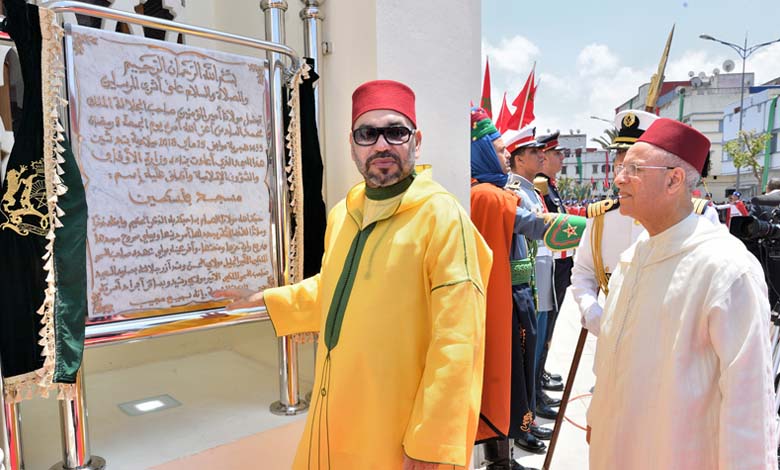The Mohammed VI Mosque in Conakry Reflects Morocco’s Efforts to Fortify Africa Against Extremism
The mosque was constructed on the directives of King Mohammed VI in accordance with authentic Moroccan architectural standards

The Mohammed VI Foundation for African Scholars, in coordination with Guinean authorities, will inaugurate the Mohammed VI Mosque in Conakry on Friday, with prominent figures from the Kingdom and the Republic of Guinea in attendance. This achievement bears witness to Morocco’s efforts to propagate the values of moderation and tolerance in Africa as part of its endeavors to combat intellectual extremism.
The Foundation stated in its release that “a representative of the Moroccan High Council of Scholars will deliver the Friday sermon in the new mosque,” noting that “the Kingdom’s embassy in Conakry will host an official iftar.” The construction of the mosque was ordered by the Moroccan sovereign, King Mohammed VI, who initiated its construction on February 24, 2017, according to authentic Moroccan architectural standards, with a capacity exceeding 3,000 worshippers.
The mosque, built on one hectare, encompasses a large prayer hall, a conference hall, a library, a Quranic school, a commercial space, an administrative section, and green areas, as per Moroccan.
This achievement falls within Morocco’s efforts to promote moderation and centrism and to fortify Africa against both Sunni and Shiite extremism, as well as to counter attempts at Shiite expansion.
This religious institution signifies the strong relationship between Morocco and Guinea, allowing Conakry to benefit from the Moroccan approach, which aims to enhance religious values advocating for tolerance and dialogue.
During the inauguration ceremony of the Mohammed VI Mosque in Conakry, the Mohammed VI Foundation for African Scholars will distribute over 1000 Ramadan baskets, as part of the Kingdom’s ongoing solidarity efforts.
Morocco is making concerted efforts to combat religious extremism and terrorist ideology in the region by training African imams and guides, constructing mosques, and distributing Qurans.
Moroccan reported that “the Hassan II Mosque in the Gabonese capital, Libreville, received copies of the Quran on Sunday as part of strengthening historical ties between the two countries and promoting a genuine understanding of Islam on the continent.”
The same source quoted Khalid Toutouzane, a professor-researcher in Sufism, literature, criticism, and aesthetics, and president of the Moroccan Center for Cultural Investment, stating that “the Holy Quran is a religious symbol that expresses Islam in its primary source,” emphasizing that “providing it in the Hassan II Mosque in Gabon or in other mosques in Africa has several implications, the first being to strengthen spiritual diplomacy and ensure the spiritual security of African countries.”
He added that “after successfully fortifying its national territory against extremist currents and threats from doctrines that do not align with its religious and doctrinal choices, Morocco aspires to spread spiritual security in Africa by providing material and moral support to these countries, especially regarding the training of scholars and the dissemination of religious sciences, and by cementing the approach of moderation and centrism.”
Karima Ghanem, president of the International Diplomacy Center, “Morocco is betting on a comprehensive diplomacy that combines economic, developmental, cultural, and spiritual aspects,” explaining that “spiritual security has become one of the fundamental pillars of Moroccan diplomacy in Africa and a soft power through which Morocco has strengthened cultural and religious ties with various countries on the continent.”












